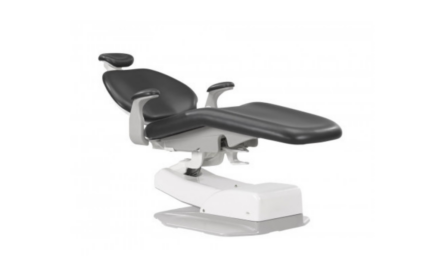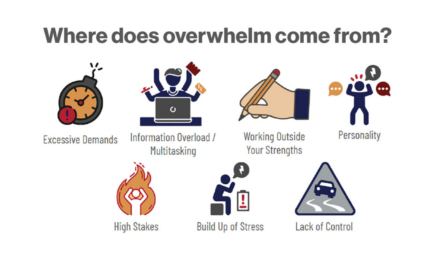For dentists thinking of selling or affiliating, peace of mind is just as important as selling price.
Used to be, many private practitioners wouldn’t consider selling to groups, believing that groups were not good for dentistry, says Anthony Stefanou, DMD. That is starting to change.
Stefanou is founder of the Dental Sales Academy and “How to Sell to Dentists” workshops, and president of Connect the Dents, a company focused on dental-industry mergers and acquisitions. He recently shared his thoughts with Efficiency in Group Practice about the individual practitioner’s perspective on selling his or her practice, or affiliating with a dental service organization.
In the past, many individual practitioners felt that groups targeted, or mainly serviced, lower income patients, and cut corners on doing quality dental work, he says. “That has changed significantly, as many of the groups now are offering state-of-the-art services and using the latest in technology. They can run practices efficiently, they have the financial resources and business plans to market effectively, and can leverage good deals with dental companies to keep overhead reasonable and also keep staff/office team personnel happy and offer attractive careers for them.
“There are many good reasons for individual practices to seriously consider groups.”
For the solo practitioner, there is only one not-so-good reason for pursuing a sale or affiliation with a dental service organization – believing he or she will get a significantly higher price for their practice than if they sell to another individual.
A fair offer
Though the private practitioner can’t expect a much higher price selling to a group, he or she will generally receive a very fair offer, says Stefanou. “[He or she] can usually be assured that, financially, it isn’t an issue from the group’s side, and the overall package to stay on is usually very solid.”
For younger dentists who are good clinically but who dislike the business side of running a practice, selling to a group is a no-brainer, he says. “Groups offer the best of both worlds – the ability to practice long-term and have the power of the group’s business acumen behind them.”
But Stefanou has a word of advice for dentists who are considering pitting one DSO against another in hopes of driving up the price of his or her practice: Don’t.
“That rarely works, and even if it does, it is uncomfortable and can start the relationship off in a bad way,” he says. “If a practice is attractive and being actively pursued by more than one DSO, my suggestion is that the dentist look to really examine each of them to see which offers the best fit in terms of philosophy of patient care, how the practice is managed ‘corporately’, and how their role will be defined.
“While dentists certainly deserve – and want – to get a fair market price for the practice they built, in some cases, for decades, it is VERY important that they feel ‘peace of mind’ that their patients will be well taken care of,” he adds. “This is true regardless of whether they are selling and retiring and ‘walking away,’ or whether they will be staying on.
“Dentists truly care about their patients. They’ve often been treating entire families for several generations, and have watched kids sit in their chairs from kindergarten through college. Every group is a bit different. So my advice is that selling dentists closely examine which [potential buyer] will be best in taking what they’ve accomplished and making it even better than they could do themselves. When they communicate that to the DSO, even though it’s a ‘business,’ the DSO appreciates the concern the dentist has for his or her patient base, and it creates an even more desirable purchase for them, which, of course, can then help the negotiating and package offered.”
Preparing the practice for sale
Generally speaking, the same things the dentist should consider when selling to another individual apply when he or she is considering selling to or affiliating with a group, says Stefanou. ”This means putting your practice in a position where its overall worth is at a maximum, so you truly get ‘fair market value.’” That means decreasing accounts receivable, increasing collection rates, getting new patients in on a consistent basis, and having an assumable/assignable lease (both) with option years.
Often overlooked is the hygiene department, which is now recognized as a true vehicle that can maximize the “goodwill” factor of a practice’s value, he adds. “The higher the overall percentage of collections that comes from the hygiene department, the better. Work on increasing productivity and the overall point of sale – dollars per patient appointment – within hygiene. This can include retailing home care/prevention products.”
Preparing the staff
Preparing one’s staff for the sale can be an uncomfortable part of the process for the practice owner, but it doesn’t have to be, particularly in those situations in which most of the team can stay on, says Stefanou.
“My advice [to the doctor selling his or her practice] is short and sweet, and involves two points: First, be very positive. The office team needs to understand the good reasons as to why the decision was made, especially around how patients will be taken care of for the future and also how efficiently the practice will operate. Plus, if there are options for them to stay on, the long-term benefits for how they will be taken care of is also emphasized.
“Second, don’t wait until the last second. This happens all the time, and then, even if it’s good for all involved, the shock value and timing isn’t appreciated and it becomes a difficult thing to accept psychologically.”
‘Impressive groups out there’
“There are some very impressive groups out there that truly understand that dentistry is different from other healthcare disciplines, and are developing plans to make sure they offer an excellent environment for patients,” says Stefanou. “These groups aren’t going to cause the ‘death’ of the solo private practitioner, as many doomsayers are predicting. I firmly believe we will, for a long time, still have both out there, as some dentists will always want to be doing things on their own and some patients will want that. Others will become part of a larger, corporate environment, which offers other advantages that the individual can’t. It’s all good.
“One final point for those dentists thinking of selling: Just because you have more options doesn’t mean the DSOs/groups are going to want you,” he says. Dentists still have to position their practices in a way that offers value and is attractive to potential suitors.
“If you are cutting back on your hours and collections are going down, you’re not getting new patients in, and you’re letting the office become run-down, unless you have the absolute BEST location in the world and a lease that is way below market value, the groups aren’t going to be interested,” he says to dentists. “In today’s dental world, groups – just as banks – don’t care how much your practice did 10 years ago. It’s ‘What have you done for me lately?’
“So, continue to do what needs to be done to increase the value of your practice, and those options will be there for you when you are ready to sell.”





